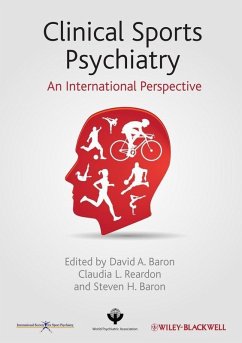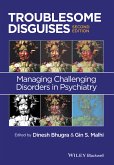This book has it all - written by national and international experts and edited by world authorities, it is the first book on sport psychiatry in over a decade. Dealing with psychopathology, mental health problems and clinical management, it differs markedly from sports psychology books that focus on performance issues. Eating disorders, exercise addiction, drug abuse are all problems that are seen in 'everyday' athletes, not just elite performers. This book shows how to help. This text covers the most important topics in contemporary sports psychiatry/psychology from an international perspective. Chapter authors are experts in the field and global leaders in the related professional organizations, including current and past Presidents/Chairs of the International Society for Sports Psychiatry and of the World Psychiatric Association Section on Exercise and Sports Psychiatry. Authors are mainly psychiatrists: the rest are PhD sport psychologists. The book comprises representative chapter authors from around the world, to an extent unprecedented in this topic. The authors and editors are well-informed in global perspectives, e.g., having served as consultants to numerous Olympic teams, in addition to service on the International Society for Sports Psychiatry's Board of Directors. Specifically, this book covers four main categories of topics: 1) mental health challenges faced by athletes (including substance use disorders, exercise addiction, eating disorders, depression, suicide, and concussion), 2) treatment approaches and therapeutic issues with athletes (including different types of psychotherapy for psychiatric disorders, psychotherapeutic performance enhancement approaches, transference and countertransference issues, achievement by proxy, psychotherapeutic issues as applied to a couple of sports that are played around the world, and use of psychiatric medications in athletes), 3) psychosocial issues affecting athletes (including sexual harassment and abuse, cultural issues, and ethics issues), and 4) the field of sports psychiatry (including work within one common sports psychiatry practice setting, and current status of and challenges in the field of sports psychiatry). There is a growing need for this book. Performance-enhancing drugs, use of psychotropics in impaired athletes, head trauma, sexual abuse, eating disorders, ethics, and depression and suicide in athletes, are just a few of the timely subjects addressed in this text. This is the only comprehensive reference available for those working in the field (or merely interested in it) to consult for current information on these topics. The existing sports psychology texts all focus on performance issues, with little, if any, attention paid to these areas of clinical significance. The book addresses the core differences between sports psychiatry and sports psychology, as well as the areas of overlap. Emphasis is placed on how the disciplines should work together in diagnosing and treating athletes dealing with emotional stress and psychopathology. Chapters include case examples and specific goals listed at the beginning, along with tables and graphs to highlight key concepts.
Dieser Download kann aus rechtlichen Gründen nur mit Rechnungsadresse in A, B, BG, CY, CZ, D, DK, EW, E, FIN, F, GR, HR, H, IRL, I, LT, L, LR, M, NL, PL, P, R, S, SLO, SK ausgeliefert werden.









